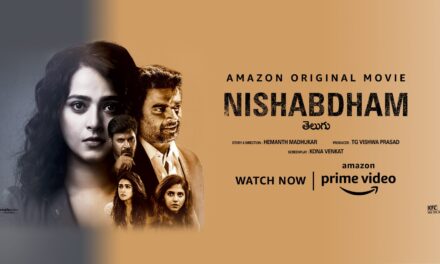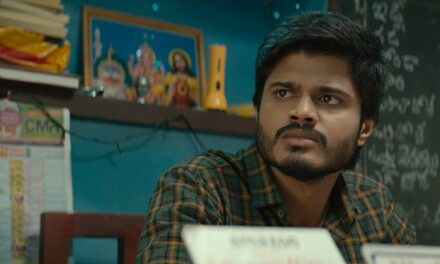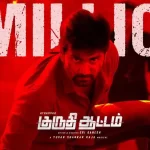Director: Mahesh Narayanan
Cast: Fahadh Faasil, Nimisha Sajayan, Dileesh Pothan, Joju George, Vinay Forrt
Language: Malayalam
Streaming on: Amazon Prime Video
The opening scenes of Malik, Mahesh Narayanan’s latest directorial, evoke memories of great gangster films from the past. Or to be more specific, the lead character of Ali, played by Fahadh Faasil, seems to bear a startling resemblance to characters like Velu Naicker and Michael Corleone from the annals of film lore.
Indeed, when you look back after completing a watch of Malik, you find that the plot isn’t unique and is quite conveniently set into the template of various legendary gangster films. But the storytelling is unique. More so is the milieu in which the story is set.
We first meet Ali as a sombre man in his fifties. He is the leader of the community in his hometown of Ramadapally. While Ramadapally’s population is made up of Muslims and Christians, we understand Ali is adored equally by members of both religious sects. Tension grips when Ali is picked up by the police and slapped with terror charges. A menacing plan is also launched by the cops to have Ali killed extra judicially, and that too, by his own nephew. Though we could guess earlier that Ali was a gang lord and must have overstepped the line of law a few times, it becomes obvious now that there are darker secrets in his past.
The film’s screenplay is quite refreshing. The flashback, which is basically Ali’s origins story, plays out as it is narrated to his nephew by three different characters. There are often some overlaps and gaps are filled by the narrators with information that they think is correct.
The flashback is the story of two friends- Ali and David-who hail from the neighbouring villages of Ramadapally and Eduvathara. While Ramadapally’s is predominantly a Muslim community, Eduvathara’s is Christian. Both these communities live in complete harmony though and there is no communal tension whatsoever. This is further strengthened by Ali marrying David’s sister Roselyn (Nimisha Sajayan) and asking her to continue following her own Christian faith.
Ali and David are quite ambitious, full of youthful energy. Making use of Eduvathara’s strategic location along the coast, they begin smuggling goods to earn better income and improve the quality of life in their villages. Ali becomes the leader of this operation and David is happy to take the back seat as the second in command. Ali especially gives back generously to his community, his main accomplishment being the construction of a new school, and this elevates him to cult status in Ramadapally. As is often the case, this also means he makes vicious enemies along the way. A Collector who bears a long grudge, a corrupt politician who loathes him for standing in his way and finally even David who falls out with him after a feud seem to be gunning for Ali’s blood, even as his stature grows. Things take a turn for the worse when the Tsunami hits in 2004, completely annihilating Eduvathara and rendering thousands homeless. Ali steps in to help, reaching out to his Christian friends, and controversially accommodating them amongst his own Muslim community at Ramadapally. This gesture however gives Ali’s detractors a chance to destroy the prevailing communal harmony. Sneaky plots are hatched and there is violence and bloodshed. There are casualties on both sides and Ali endures a massive personal tragedy himself when he loses a loved one. Fast forward about 17 years and an air of suspense lingers in the present. Will Ali’s nephew succeed in his attempts to kill his uncle? Or are there more secrets or back stories yet to be revealed? There is a terrific twist right at the end that you hardly see coming and it leads the film to an epic conclusion.
Fahadh Faasil carries the film on his shoulders with a top-notch performance. Note how he’s had to lose weight to pull off his character’s appearance at different age brackets. Nimisha Sajayan also puts in a now familiar stellar show, but the surprise package comes from Dileesh Pothan, who rocks in his role as a sleazy, backstabbing politician.
Mahesh Narayanan started his journey as an editor and then transitioned into directing. He continues wearing the hat of an editor in the films that he directs. His editorial expertise is quite apparent here. As mentioned before, the film’s key highlight is the telling of an overlapping story by three different characters. This means that the screenplay often takes on a non-linear form and effective editing thus becomes critical. I have to admit, at times I found the non-linearity, especially towards the end, a bit fuzzy. Some of the cuts and sequences in these portions were racy and I’m guessing it also makes a difference if you’re not a native speaker of Malayalam. But the end product definitely works and Malik is a solid film, making it the second winning collaboration in a row between Fahadh Faasil and Mahesh Narayanan. I do wish, taking liberty for some pun, that we see them working together again soon!
Rating: 3/5










